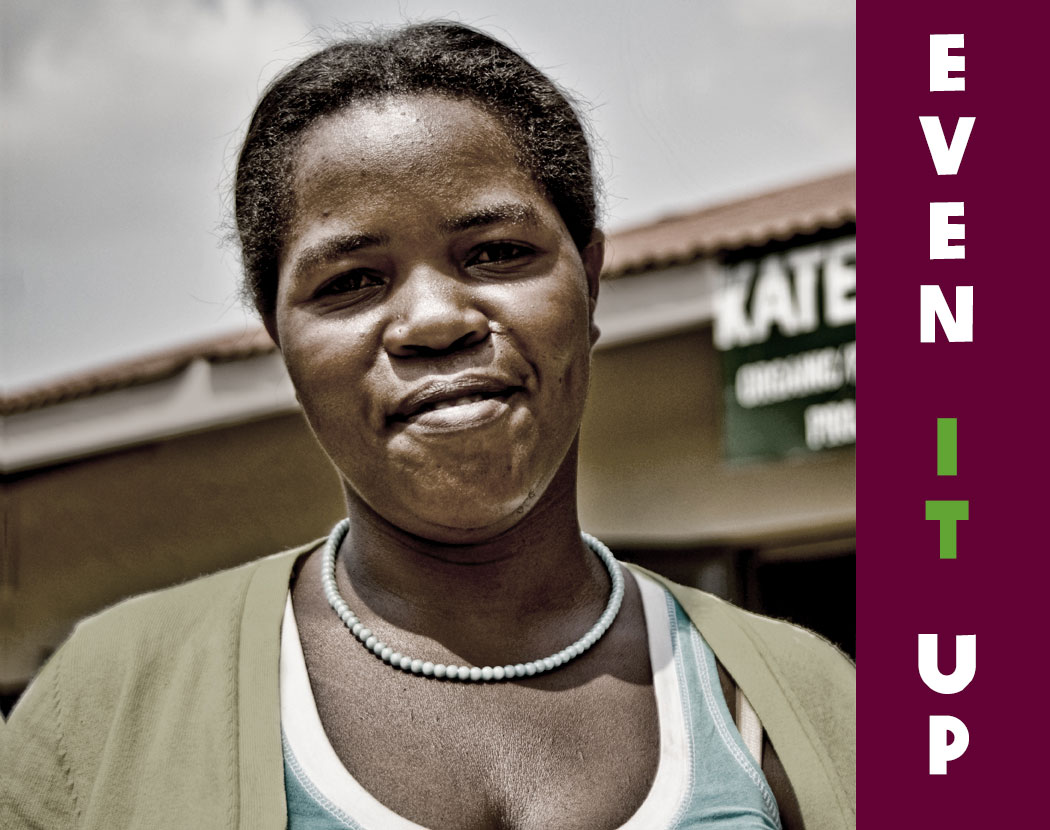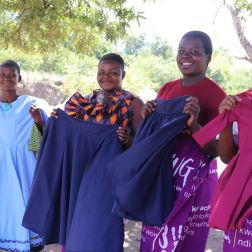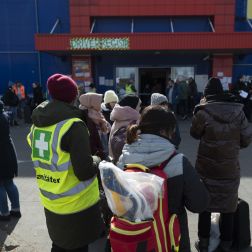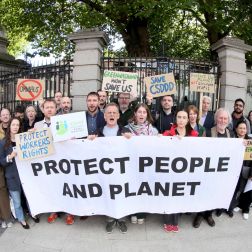- 5 mins read time
- Published: 9th December 2016
Tax battles: Home truths on tax
If you were asked to picture a typical tax haven, you would probably start thinking of an exotic island with palm trees and golden sandy beaches. And yes, the stereotype is partly true. Bermuda, Barbados and the Bahamas certainly fit that bill. So far, so typically tropical. But some other tax havens are closer to home than you might think. That’s because a new Oxfam report – entitled ‘Tax Battles’ – found Ireland ranked 6th in a new league table of the world’s worst corporate tax havens which help big companies avoid paying their fair share of tax. And it’s costing governments the world over billions that could pay for health, education and tackling poverty.
TAX BATTLES
Ireland’s score was based on its lack of effective rules to prevent corporate tax dodging and because it facilitates large-scale corporate tax avoidance through profit-shifting and aggressive tax planning structures. Loopholes and so-called sweetheart deals – like the tax arrangements enjoyed by Apple, which enabled the global tech giant at one point to pay a 0.005 percent corporate tax rate – mean big firms can dodge tax here and in poor countries, where that cash is needed to pay for roads, doctors and schools. The full list of the world’s worst tax havens, in order of significance are: (1) Bermuda, (2) the Cayman Islands, (3) the Netherlands, (4) Switzerland, (5) Singapore, (6) Ireland, (7) Luxembourg, (8) Curaçao, (9) Hong Kong, (10) Cyprus, (11) Bahamas, (12) Jersey, (13) Barbados, (14) Mauritius and (15) the British Virgin Islands. The UK does not feature on the list, but four territories that the United Kingdom is ultimately responsible for do appear: the Cayman Islands, Jersey, Bermuda and the British Virgin Islands.
AGGRESSIVE POLICIES
The 15 countries earned their place on the ‘world’s worst’ list because they have adopted an aggressive set of policies which are helping big firms to minimise their tax bills, leaving those who can least afford it to pick up the tab. Oxfam researchers compiled the ‘world’s worst’ list by assessing the extent to which countries employ the most damaging tax policies, such as zero corporate tax rates, the provision of unfair and unproductive tax incentives, and a lack of cooperation with international processes against tax avoidance (including measures to increase financial transparency). Through loopholes, secrecy and driving unfair tax competition, tax havens are undermining the ability of poor countries to collect the cash they need to pay for health and education, vital to lifting people out of poverty. People here don’t want it to be this way – 82% told us earlier this year the Irish government should be tackling tax dodging and champion fair taxation. Ireland should take immediate action to curb corporate tax havens and their role in harmful tax competition by agreeing international tax haven criteria and a clear public list of where the tax havens are. Strong measures including sanctions should be adopted to limit profit shifting. And people in Northern Ireland want the UK government to prioritise ending tax avoidance, with 89% telling us last month they are concerned when big firms don’t pay their fair share of tax, ordinary people pay the price.
HOW TAX DODGING IMPACTS PEOPLE
This tax dodging is affecting ordinary tax payers like you and Kyohairewe, a coffee producer in Uganda. Kyohairewe pays her taxes – but tax dodging by big companies means there is not enough money for essential services and infrastructure spending in the country. Roads are in such bad condition that Kyohairewe struggles to bring her produce to her customers in the market, restricting her chances of earning a livelihood. If people such as Kyohairewe (pictured below) have to pay a fair rate of tax, why shouldn’t wealthy big businesses and multi-national companies do the same?  Above: Kyohairewe, a coffee producer in Uganda, pays her taxes – but tax dodging by big companies means the roads are such bad condition that she struggles to bring her produce to her customers. Photo: Pablo Tosco/Oxfam The UN estimates that tax dodging by multinationals costs poor countries at least $100 billion (approx. €92bn/£79bn) every year, with devastating consequences for the world’s poorest people. This money could ensure that the 124 million children currently not in school get an education and provide healthcare that could save the lives of six million children a year. Corporate tax revenue is doubly important as a proportion of total tax revenue in poor countries as in rich ones.
Above: Kyohairewe, a coffee producer in Uganda, pays her taxes – but tax dodging by big companies means the roads are such bad condition that she struggles to bring her produce to her customers. Photo: Pablo Tosco/Oxfam The UN estimates that tax dodging by multinationals costs poor countries at least $100 billion (approx. €92bn/£79bn) every year, with devastating consequences for the world’s poorest people. This money could ensure that the 124 million children currently not in school get an education and provide healthcare that could save the lives of six million children a year. Corporate tax revenue is doubly important as a proportion of total tax revenue in poor countries as in rich ones.
EVEN IT UP
That’s why your support for our Even It Up campaign is so important. We need to press governments and companies to make tax fair and transparent, so we can see what’s really going on. We need to close loopholes and make sure Ireland and the UK improve their tax policies and practices here, and support global plans to make tax fair. We need an end to the era of tax havens.




